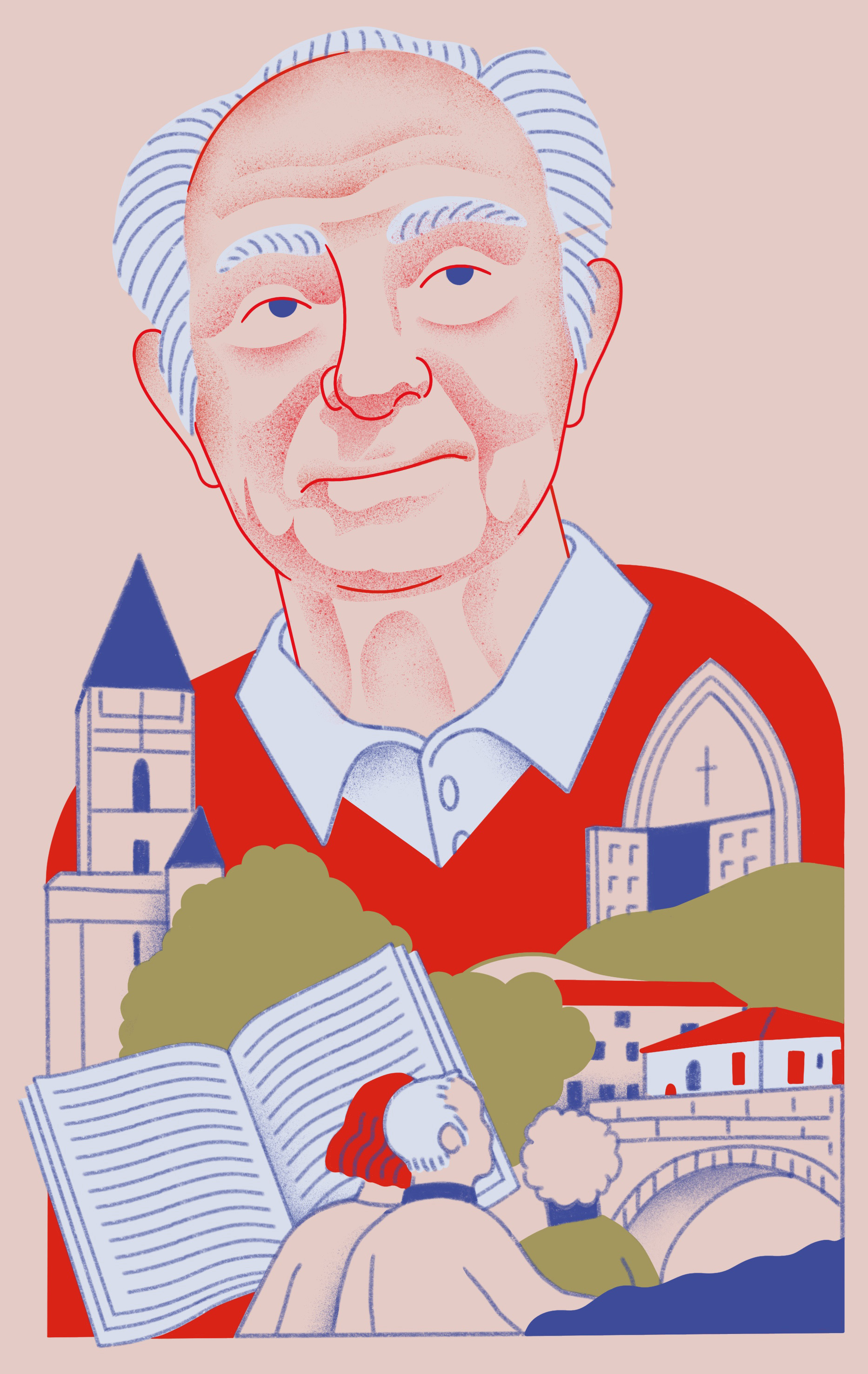

At the end of last month, Mixel Oronoz, a priest and euskaltzalea.Berak left freely at points of foot, discreetly, did not want any distinction, as the goodness of discharge was deserved.
Some of us will remember him for his commitment to the Basque country. Oronoz, the son of Baigorri, went through almost the century and during that time he not only witnessed the evolution of the continental Basque Country, but also an actor, a vagrant traversed in the history of Bizkarsoro, a film that extends these days. From a very young age, linked to the Basque country, I was aware of the fall of the Basque country. Beyond the Basque Renaissance, by the year 2000, you will probably remember a founding and tireless member of the Basque Confederation, of all the congresses, of all the demonstrations, usual spokesman for the distress of the Basque sector. Those of my generation knew it then. Those of us who met at that time appreciated a silent and attentive person. Despite being more mature, wiser or more able to speak in the debates, responsibility was listening to the laughter of others, so that others understood and took the blame. In Bizkitarte, it was not a silent ordinary person, because when he took the floor he knew, without being too strong, since he began to express what had to be said and holding the attention of the interlocutors, whatever they were, of the ministerial, elected or reluctant representatives. I was very pleased with both the impetus of the newly created Confederation and the impetus of the foundations of public language policy. That same policy was then stimulated, while it gave it strength.
Some of us will have read his books. He has left us essays and novels, as well as parrasters, testimonies of a memory and evolution, often of political content, that can give us what to think, always with words adjusted and clear. They witness their culture, their experience and their knowledge, and at the same time some subjects that always look to the future.
In general, we will remember the humble worker who opted for the Tipis. Of course, for the Basques, but also for all those excluded.
Some remember the cure. Humble and not judge, pregnant and open. He had long been unrelated to the church and talked in different places about the distance he had taken with Bishop Aillet and the ecclesiastical fundamentalists, ensuring the freedom of his steps. He said that the caste of the priests had to be exploited and he was concerned about the extreme right direction the church was taking. In addition, Oronoz opted for the excluded, for the homosexuals, for the priests who would work and marry, for those excluded from the churches... These positions in Orona caused him to be expelled from the diocese of Bayona, a priest who did not like to turn his back on people.
In general, we will remember the humble worker who opted for the Tipis. Of course, for the Basques, but also for everyone. Surprisingly, some called Mixu, just like citizens and acquaintances, of any age, seemed to be priests and an unrespected name to be older; he himself had no problem with that and drew attention with more enthusiasm. Very close.
He always worked as a generous and humble person to help others, both in the service of the Basque Country and in memory. And so it was, as he lived, discreetly, on his feet.
No goodbye, Mixu.